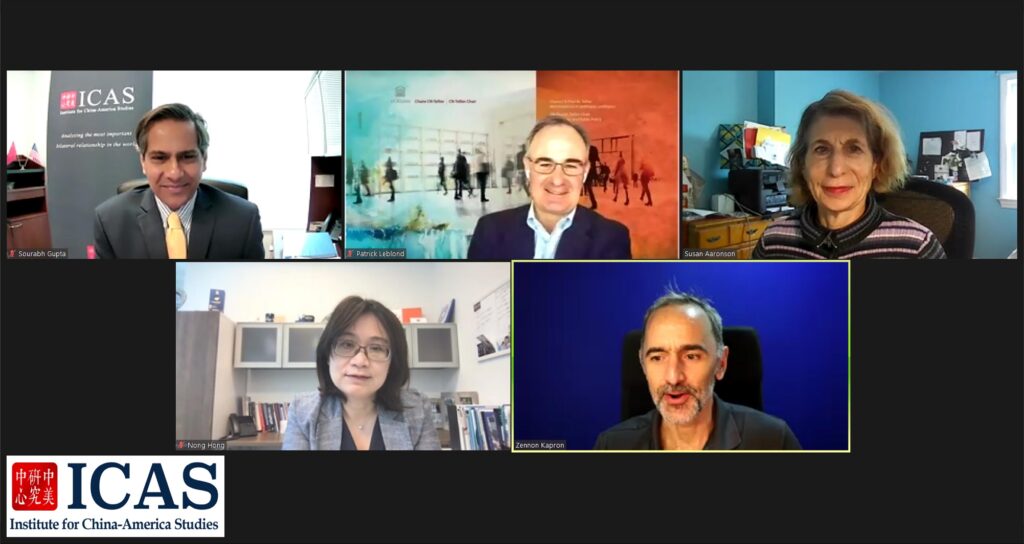

EVENT SUMMARY
On May 10, 2023, the Institute for China-America Studies (ICAS) hosted a virtual public event to discuss digital trade and cross-border data flows in the context of the ongoing Indo-Pacific Economic Framework (IPEF) negotiations. The event was titled “Digital Trade and the Indo-Pacific Economic Framework (IPEF): New Rules, New Opportunities, New Challenges.” The panelists were introduced by Dr. Hong Nong, Executive Director of ICAS, and the event was moderated by Mr. Sourabh Gupta, Head of ICAS’ Trade n’ Technology Program. The featured panelists were: Dr. Susan Aaronson, Research Professor and Director, Digital Trade and Data Governance Hub at the George Washington University; Mr. Zennon Kapron, Founder and Director of the consultancy Kapronasia; and Dr. Patrick Leblond, CN-Paul M. Tellier Chair on Business and Public Policy at the University of Ottawa.
The panelists were in broad concurrence that given the dynamism and fluidity of innovation, processes and practices in the digital sphere, there were more questions than answers with regard to locking down cross-border data flow rules in digital economy agreements. The emphasis therein, rather, has typically been to strive to strike a balance between incentivizing commercial cross-border data flows while preserving the right to regulate these flows. Setting rules and standards in stone that might soon become outdated or difficult to politically modify has been eschewed. The problem though with this ‘best endeavor’ approach to cross-border digital trade rulemaking is that the regulatory exceptions that are built-in to accommodate policy space for domestic regulation tend to end up swallowing the rules themselves. Which then begs the question: Are we any better off with these agreements, given their wide latitude for self-judging exceptions and flexibilities? This dilemma has been compounded in the IPEF negotiations by its proposed design (the agreement trades market access for broader provisions that maintain exceptions, including in the digital area) and distorted emphasis on geopolitics and ‘values’ (an Asia-Pacific trade framework that disregards the importance of China’s data-driven economy while accommodating the ‘controlling’ tendencies of rival regional players is unlikely to excite the business community). That IPEF member states are at vastly different levels of development and at varying stages in the domestic regulation of their digital ecosystems has not helped either. On a separate but related note, China too must reconsider its ‘digital island’ approach if it is to successfully tap into the global ecommerce boom beyond its borders.
The loose consensus among the panelists was that the effort to frame cross-border data flow rules in IPEF, howsoever flexibly, is not a meritless one. The final outcome is likely to be one that is facilitative of the U.S. interest in cross-border flows while also embodying a low common denominator approach that is reflective of the national regulatory approaches of the participating member states. Deterministic rules and frameworks will be eschewed. The U.S. itself has much work to do at home too with regard to defining and deepening the perimeter of digital regulation. And as for middle powers and smaller countries caught in the crossfire of U.S.-China animosity in the data sector and beyond, their best option is to continue to co-exist and play within the ‘sandboxes’ (marketplaces) of their heavyweight peers, without being forced to choose one over the other.


